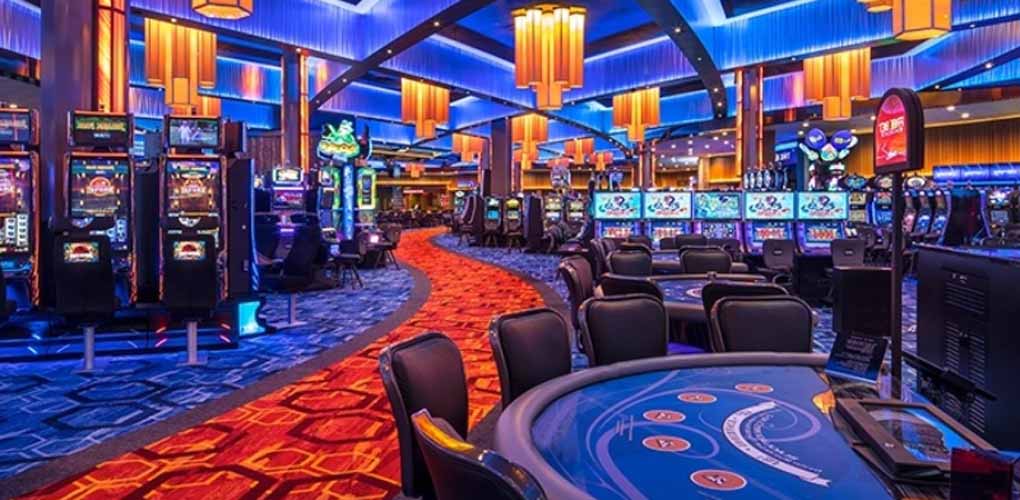
Casino gaming has long been a subject of fascination and debate, attracting millions of players globally. With a mix of chance, strategy, and the excitement of risk, casino games offer an exciting escape from everyday life. However, as entertainment becomes ever more accessible, it invites a deeper examination of the morality surrounding these games.
At the heart of the debate lies the question of whether casinos promote safe gambling or take advantage of vulnerable individuals. The appeal of potential winnings versus the truth of losses can create a complex situation, and understanding this balance is crucial for both players and operators. As we delve into the ethics of casino gaming, we will explore the responsibilities of casinos, the effects on society, and the steps that can be taken to foster a healthier gaming environment.
The Impact of Casino Gaming on Society
Casino gaming has a considerable influence on society, affecting not only the economy but also interpersonal dynamics and local frameworks. The funds generated from casinos can lead to employment opportunities and boost regional economies, as they provide numerous employment opportunities in multiple fields including food and beverage, entertainment, and retail. However, while the financial benefits can be significant, communities often struggle with the possible negative impacts that arise from higher gambling activity.
Moreover, the presence of casinos can lead to an rise in gambling addiction, presenting significant challenges for individuals and families. The excitement of casino games can quickly transform into a compulsive habit, affecting connections with others and leading to monetary issues. casino no ID verification Many individuals may find it difficult with the loss of control over their gambling behaviors, resulting in a need for assistance programs and interventions to address this growing issue. The social cost of addiction can extend through kinships and neighborhoods, creating an urgent need for sensible gambling approaches.
In addition to the economic and social consequences, casino gaming often reflects cultural attitudes towards uncertainty and entertainment. It can encourage a sense of joy and leisure, attracting tourists and boosting local travel. However, this allure may also mask the wider implications of gambling as a form of entertainment, raising ethical questions about its advertisement and availability. As communities weigh the advantages and disadvantages of casino gaming, the need for responsible practices and oversight becomes increasingly critical in ensuring that the positive aspects are enhanced while reducing the negative effects.
Ethical Issues in Gambling Activities
The ethics of gambling gaming often revolve around the risk for addiction and its effects on individuals and families. Gambling can lead to serious monetary distress, impacting not only the gamblers but also their loved ones. As people become entrapped in the appeal of winning, many lose track of their budget, which can result in catastrophic results such as bankruptcy. This poses ethical questions about the responsibility of casinos in fostering safe gambling habits and providing support for those who may be dealing with gambling addiction.
Another critical issue is the promotion of gambling to at-risk populations. Gambling establishments often target low-income people or neighborhoods with the promise of quick gains, which can continue patterns of poverty and despair. In this situation, the ethics of marketing strategies used by casinos come under examination, as they may take advantage of the need of people seeking an escape from economic troubles. This manipulation raises ethical questions about the honesty of the gambling industry and its responsibility to protect its most vulnerable customers.
Additionally, the impact of gambling gaming on society as a whole cannot be ignored. While some argue that gambling establishments create jobs and boost local economies, others point to the social costs associated with dysfunctional betting, increased crime rates, and a strain on public services. Balancing financial advantages with the risk for social harm presents a challenging ethical dilemma for lawmakers and gambling operators alike. The challenge lies in discovering a responsible approach that takes into account the well-being of people and society while still permitting for the pleasure of casino gaming.
Oversight Framework and Duties
The regulatory structure related to casino operations is created to ensure fairness, honesty, and participant protection. Multiple government bodies and gambling commissions set and enforce regulations that dictate how gambling games function, the standards for activity development, and the protocols for handling prizes. These regulations differ by locale but commonly involve licensing requirements for businesses and stringent measures to avoid fraud and dishonesty.
In addition to governing bodies, gambling operators bear considerable accountability in maintaining moral standards within their establishments. They must implement ethical player practices that promote gambler security and education, including offering self-limitation options and sharing information about the hazards related to gambling. Establishments are also responsible for educating staff to recognize signs of problem gambling and be aware of the proper measures to help customers in trouble.
Additionally, openness in casino operations is crucial for building and keeping public faith. Casinos should provide clear data about the odds of games, marketing deals, and any associated dangers. By promoting an environment of integrity and responsibility, casinos can help reduce the possible adverse impact of gaming while boosting the complete gaming experience for all players.